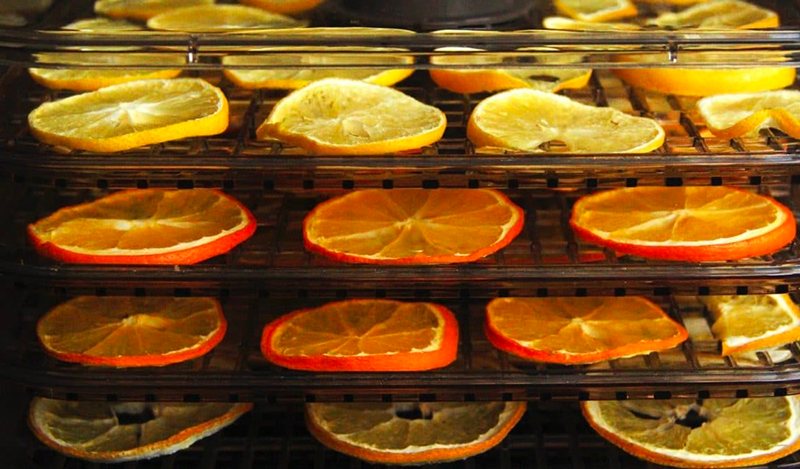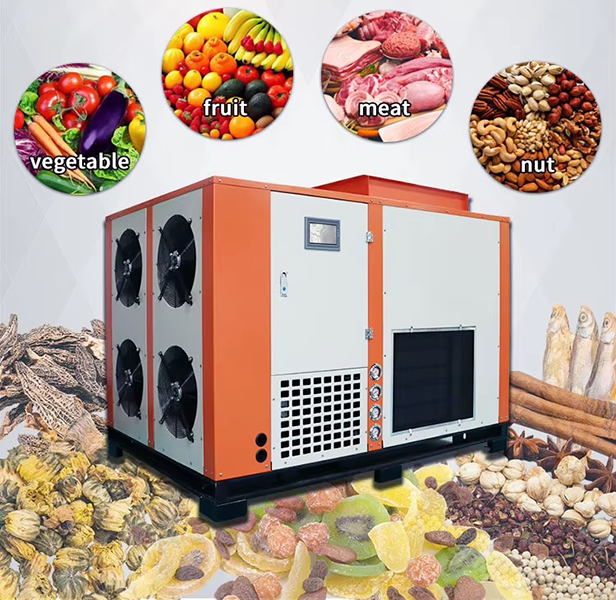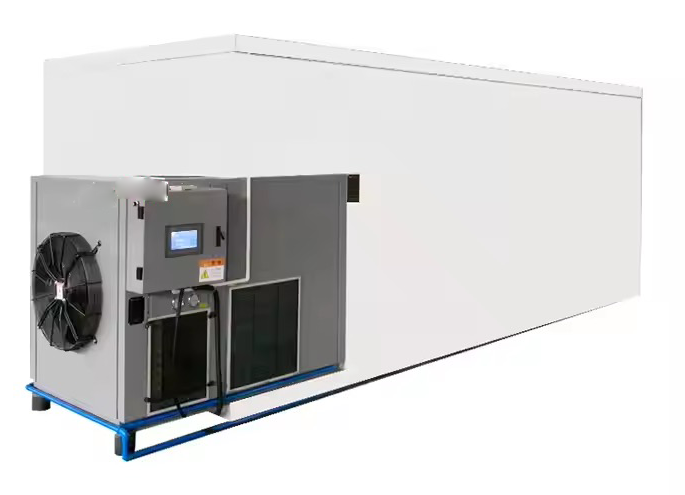
Content Menu
● Understanding Food Dehydration
>> How Does Dehydration Work?
● Nutritional Impact of Dehydration
>> Nutrient Retention in Dehydrated Foods
● Benefits of Using a Food Dehydrator
>> Additional Benefits
● Potential Drawbacks of Dehydrated Foods
● Tips for Effective Food Dehydration
● Conclusion
● FAQ
>> 1. Do all nutrients remain intact when food is dehydrated?
>> 2. Is it safe to eat dehydrated foods?
>> 3. Can I rehydrate dried fruits and vegetables?
>> 4. How long do dehydrated foods last?
>> 5. Are there any health risks associated with eating too many dehydrated foods?
● Citations:
Food dehydrators have become increasingly popular for preserving fruits, vegetables, and even meats. As consumers become more health-conscious, the question arises: Does using a food dehydrator affect the nutritional value of food? This article will delve into the science behind food dehydration, its effects on nutrient retention, and the benefits of incorporating dehydrated foods into your diet.

Understanding Food Dehydration
Dehydration is the process of removing moisture from food to inhibit the growth of bacteria, yeast, and mold. This method has been used for centuries as a means of food preservation. Modern food dehydrators use low heat and air circulation to efficiently remove moisture while maintaining the integrity of the food's nutrients.
How Does Dehydration Work?
- Moisture Removal: By applying gentle heat (typically between 125°F to 165°F) and circulating air, dehydrators evaporate water content from food.
- Nutrient Concentration: As moisture is removed, nutrients become more concentrated. For instance, dried fruits are lighter and smaller but pack more calories and sugars per ounce than their fresh counterparts.
- Flavor Enhancement: The dehydration process intensifies the natural flavors of fruits and vegetables, making them taste sweeter or more robust.
Nutritional Impact of Dehydration
The primary concern regarding food dehydration is whether it diminishes the nutritional value of the food. Research indicates that while some nutrients may be lost during dehydration, many essential vitamins and minerals remain intact.
Nutrient Retention in Dehydrated Foods
- Vitamins: Most vitamins are retained during dehydration. However, water-soluble vitamins like Vitamin C and some B vitamins can degrade due to heat exposure. For example:
- Vitamin A and E are generally stable during dehydration.
- Vitamin C may decrease by about 20-50% depending on the temperature and duration of drying.
- Minerals: Minerals such as potassium, magnesium, and calcium are not affected by the dehydration process. They remain present in dehydrated foods at similar levels to their fresh forms.
- Antioxidants: Dehydrated foods retain a significant amount of antioxidants, which are beneficial for health due to their role in combating oxidative stress.
- Fiber: The fiber content remains largely unchanged during dehydration, making dried fruits and vegetables a good source of dietary fiber.
Benefits of Using a Food Dehydrator
Incorporating a food dehydrator into your kitchen can offer numerous advantages:
- Extended Shelf Life: Dehydrated foods can last for years when stored properly, significantly reducing food waste.
- Convenience: Dried foods are lightweight and easy to store, making them ideal for camping or travel snacks.
- Nutrient Density: Dried fruits and vegetables provide concentrated sources of nutrients without added sugars or preservatives often found in commercial snacks.
- Versatility: Dehydrated foods can be used in various recipes—from soups to snacks—enhancing meals with rich flavors without excess moisture.

Additional Benefits
1. Cost Savings: By purchasing seasonal produce in bulk and dehydrating it at home, you can save money compared to buying pre-packaged dried goods. This method allows you to take advantage of lower prices during peak harvest times[6].
2. Healthy Snacking Options: Homemade dehydrated snacks are free from added sugars or preservatives that are often found in store-bought versions. Creating your own snacks allows you to control ingredients, making them healthier alternatives[1][3].
3. Reduced Risk of Food Poisoning: The dehydration process reduces water content that bacteria need to thrive. This means that properly dehydrated foods have a lower risk of harboring harmful microorganisms[2][8].
4. Enhanced Flavor Profiles: Dehydration concentrates flavors in fruits and vegetables, making them taste sweeter or more intense. For example, dehydrated tomatoes can be used in sauces or salads for a burst of flavor without added moisture[3].
5. Convenient Meal Preparation: Dried foods can easily be rehydrated for use in soups, stews, or casseroles. This makes meal prep easier while still providing nutritious options[2][5].
Potential Drawbacks of Dehydrated Foods
While there are many benefits to dehydrated foods, there are also some considerations:
- Caloric Density: Dried foods contain more calories per ounce than fresh foods due to the lack of water. This can lead to overeating if portion sizes are not managed carefully[2].
- Nutrient Loss: Some nutrients may be lost during the drying process, particularly if high temperatures are used or if foods are blanched before drying. It's essential to balance your diet with fresh produce to ensure adequate vitamin intake[8].
- Hydration Needs: Since dried foods lack water content, it's crucial to drink plenty of fluids when consuming them to maintain hydration levels[9].
Tips for Effective Food Dehydration
To maximize nutrient retention while using a dehydrator:
- Opt for lower temperatures when possible.
- Avoid prolonged drying times.
- Cut fruits and vegetables into uniform sizes for even drying.
- Use lemon juice on fruits like apples or bananas to prevent browning during dehydration[4].
- Store dehydrated foods in airtight containers away from light and moisture to prolong shelf life[6].
Conclusion
In summary, using a food dehydrator does not significantly compromise the nutritional value of foods. While some vitamins may degrade during the drying process, most essential nutrients remain intact. The benefits of dehydrated foods—such as extended shelf life, convenience, and nutrient density—make them an excellent addition to any diet.
To maximize nutrient retention while using a dehydrator:
- Opt for lower temperatures when possible.
- Avoid prolonged drying times.
- Incorporate a variety of fresh fruits and vegetables into your diet alongside dehydrated options.

FAQ
1. Do all nutrients remain intact when food is dehydrated?
Most nutrients remain intact during dehydration; however, water-soluble vitamins like Vitamin C may experience some loss due to heat exposure.
2. Is it safe to eat dehydrated foods?
Yes, when prepared correctly using a food dehydrator, dehydrated foods are safe to eat and can have a long shelf life if stored properly.
3. Can I rehydrate dried fruits and vegetables?
Yes! Dried fruits and vegetables can be rehydrated by soaking them in water or adding them directly to soups or stews where they will absorb moisture.
4. How long do dehydrated foods last?
When stored in airtight containers in a cool, dark place, dehydrated foods can last for several years without spoiling.
5. Are there any health risks associated with eating too many dehydrated foods?
While they can be nutritious, consuming excessive amounts can lead to increased calorie intake due to their concentrated nature. Moderation is key!
Citations:
[1] https://septree.com/pages/10-reasons-to-buy-a-septree-food-dehydrator
[2] https://www.webmd.com/diet/dehydrating-food-good-for-you
[3] https://brodandtaylor.com/pages/dehydrating
[4] https://www.cnet.com/pictures/tips-for-using-your-new-dehydrator/
[5] https://www.freshoffthegrid.com/dehydrating-food/
[6] https://etsolutions.in/10-amazing-benefits-of-electrical-food-dehydrator-machines/
[7] https://pmc.ncbi.nlm.nih.gov/articles/PMC7602416/
[8] https://www.healthline.com/nutrition/dehydrated-food
[9] https://www.allrecipes.com/article/how-to-use-a-food-dehydrator/
[10] https://airtekdehydrator.com/health-advantages-using-food-dehydrator/











